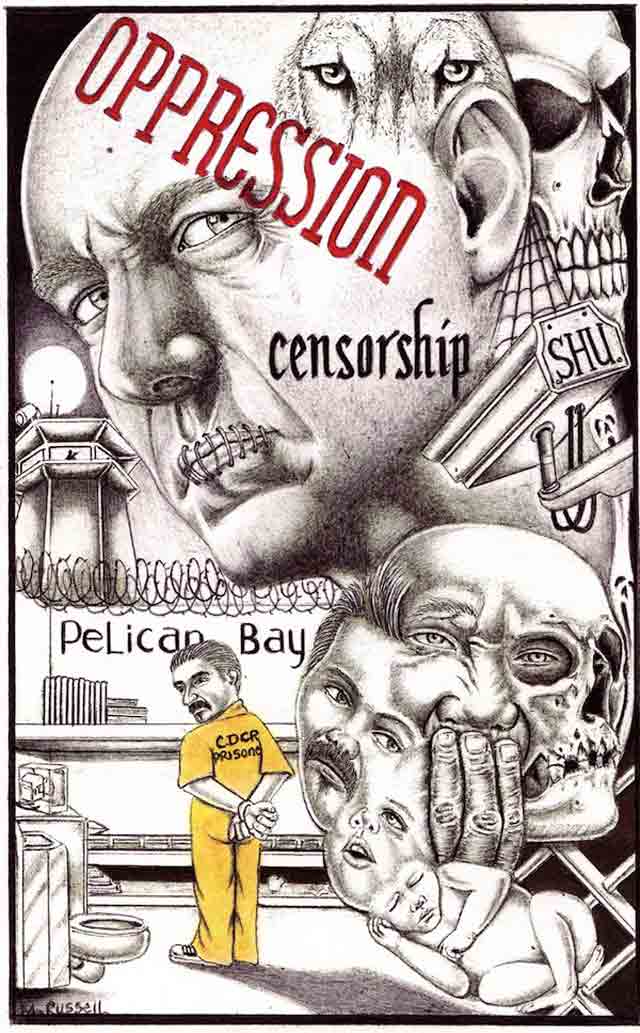Today marks day 40 of the California prisoners' hunger strike and Governor Jerry Brown has still not issued a statement. His complete silence on their demands has caused serious debate and controversy as the globe turns to California to address cruel and unusual punishment and the security housing unit (SHU) in the industrial prison complex. Activists and supporters protested yesterday at the state capitol and created a replica of what it's like to be in the SHU temporarily, let alone for decades. Originally, the SHU was meant to be an adjustment center where inmates who were a threat to themselves or others, who engaged in illegal activity outside of prison, or who were in a witness protection program, would be sent to isolation where social and psychological services would be rendered through a rehabilitation program. The program was never established, instead, Pelican Bay was opened in 1989 with a massive isolation unit set up as a Panoptican institution designed by the philosopher Jeremy Bentham in the 1800's. Soon, these types of "super-maximum security units" were opened across the state.
In the 1980s, the state of California stepped-up its efforts and arrests on drug offenses in response to the crack epidemic. Tough on crime policies were implemented across the board issuing longer prison sentences and scaling back parole release. With drug use and sales increasing on the outside, and gang proliferation on the streets that went well into the 1990s, the California judicial system found a systematic way to warehouse people from inner-cities. Around this time, Pelican Bay was used to house "the worst of the worse" and many gang members and leaders were sent there to remove them from the mainline general population and kept in their isolated cells for twenty-three hours a day. Originally meant to send inmates there for a maximum of three months, keeping them there indefinitely has become the norm, including some who have been there for decades and others serving out there full life terms. In 2002, the Commission on Safety and Abuse in America found that "The increasing use of high-security segregation is counter-productive, often causing violence inside facilities and contributing to recidivism after release." Moreover, solitary confinement is considered psychological torture when the period of isolation is longer than a few weeks and U.S. prison polices violate international treaty law and established international norms. As a result, the "SHU syndrome" has been coined and includes symptoms that resemble post-traumatic stress disorder like hallucinations, depression, anxiety, anger, and suicide.
In response to these conditions, SHU inmates in Pelican Bay led a hunger strike in 2002, and a second followed in 2011 that spread in solidarity to Corcoran and Folsom. The strikes transcend racial lines with all groups participating in a strong show of solidarity and unison. The latest resumed 39 days ago after certain promises were broken and the cruel and unusual punishment conditions remained the same. One inmate, Billy Sell, died about a month ago as a result of the strike and the CDCR's lack of medical attention and unresponsiveness. And still, no response by the Governor.
There core demands are:
1. End Group Punishment and Administrative Abuse
2. Abolish the Debriefing Policy, and Modify Active/Inactive Gang Status Criteria
3. Comply with the US Commission on Safety and Abuse in America's Prisons 2006 Recommendations Regarding an End to Long-Term Solitary Confinement
4. Provide Adequate and Nutritious Food
5. Expand and Provide Constructive Programming and Privileges for Indefinite SHU Status Inmates
